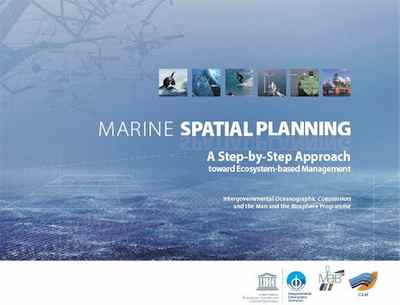Like many others, I’m a little late to this party: in June, the Obama administration kick-started a rapid process of developing a coherent ocean policy. An “Ocean Policy Task Force” has been charged with making recommendations to the administration in two phases: by mid-September, they are expected to offer a framework for ocean policy as well as a “an implementation strategy that identifies and prioritizes a set of objectives the United States should pursue to meet the objectives of a national policy for the oceans, our coasts, and the Great Lakes.” Then, by mid-December, the Task Force is asked to recommended a “framework for effective coastal and marine spatial planning. This framework should be a comprehensive, integrated, ecosystem-based approach that addresses conservation, economic activity, user conflict, and sustainable use” of the oceans and Great Lakes. Public comments are being welcomed here.
AEI has just submitted brief comments on the latter goal, an area in which ocean noise should play a central role. Marine Spatial Planning is agency-speak for ocean zoning, along with an ocean version of ecosystem-based management. The idea is that we develop a coherent, comprehensive picture of ocean habitats, and plan economic activity (e.g, shipping, renewable energy) in places where the ecological impacts will be minimized, while protecting key biologically rich or sensitive areas. If we have already designated some areas as more suitable for development, while putting biologically important areas either off-limits or under a regimen of closer scrutiny, then (ideally) contentiousness can be minimized in the planning and permitting process. In this context, AEI urged the Task Force to consider the pressing need for more comprehensive ocean “noise budgets” (a noise budget is a clear picture of the mix of sounds heard in various areas). Of particular importance in marine conservation is the identification and protection of those rare areas in which global shipping noise is not a major acoustic presence. Such areas are likely to be in coastal zones, including protected inlets and in “sound shadows” behind offshore islands. In addition, a more robust global noise budget would identify areas with only moderate impacts from shipping noise, and work to minimize the establishment of new shipping lanes in these regions.
Our comments acknowledged that human-caused ocean noise has only a moderate direct impact on ocean life, relative to many other more gross stressors (such as bycatch, toxins, and rising sea temperatures). However, there is growing evidence that noise is a biological stressor in many situations, and that such biological stress can markedly increase the impact of other systemic stressors. The information gained by the development of a global noise budget could be used to assure that other efforts to reduce impacts on ocean life (eg, reducing toxin inflow to the ocean in particular high-impact areas) are supported as well by reductions in noise-related biological stress. Conversely, in areas where known effects are difficult to mitigate (eg key habitats particularly affected by rising temperature), efforts could be made to minimize the additional synergetic effects caused by noise-related stress.
For more on Marine Spatial Planning, see this excellent website from UNESCO, where this report is available:

